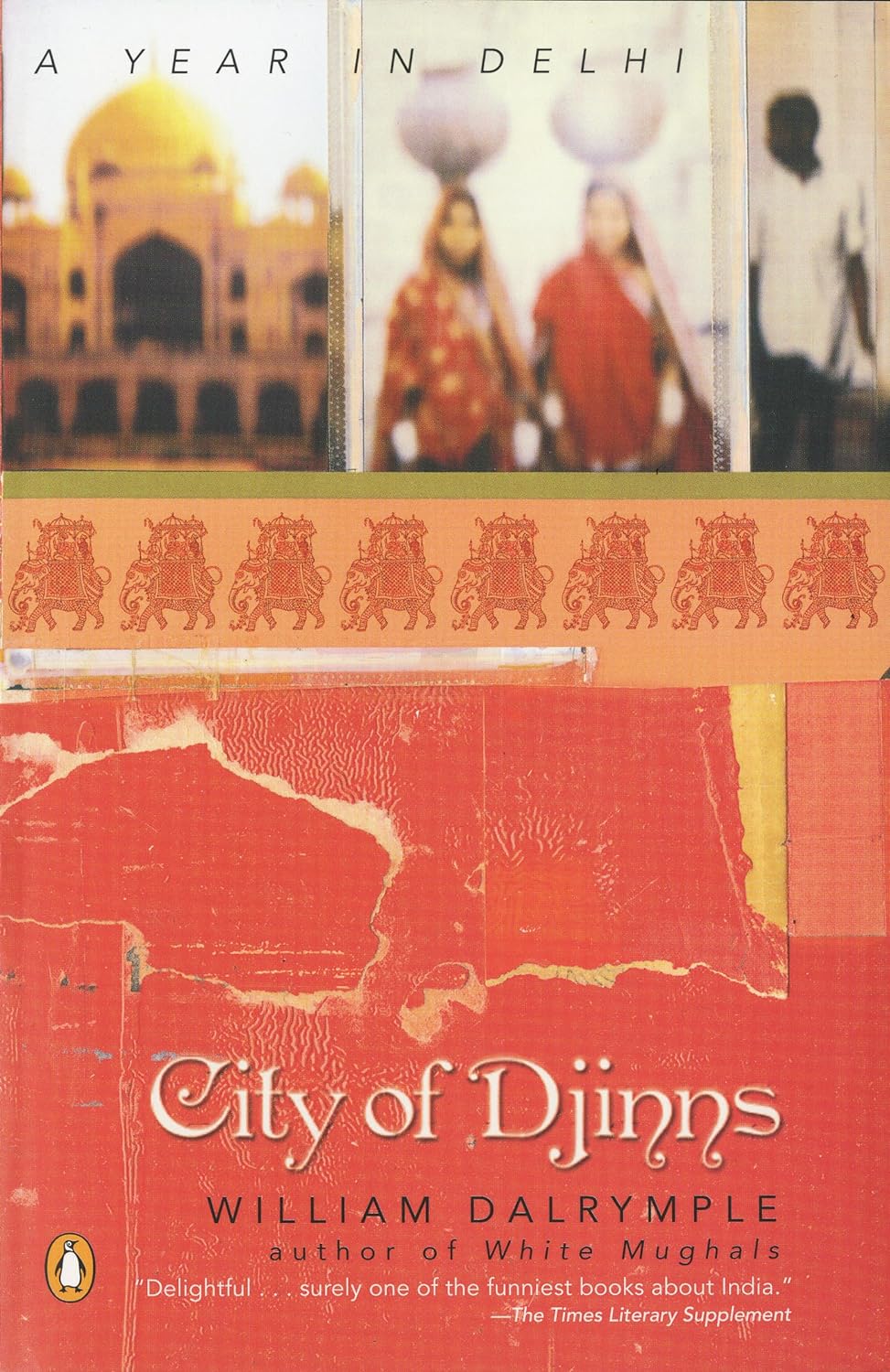
Armchair travel around the world!
Start your reading adventures with our FREE Reading Atlas.

- Around the World in 14 Books
- 7 Thrilling Book Series
- 6 Audiobooks That Are Like Theater For Your Ears



This magic-tinged history (350 pages) was published in March of 2003 by Penguin Books. The book takes you to Delhi. David read City of Djinns and loved it; it wouldn't be on our site if he didn't recommend it.
Bookshop.org is an online bookstore with a mission to financially support independent bookstores and give back to the book community.

William Dalrymple is a Scotsman who fell hard for India in the 1980s, and he’s been writing about his adopted home ever since.
He was just 17 years old when he visited Delhi for the first time. This story about the djinns is the opening for this extraordinary book about this mystical, ancient city: ‘It was in the citadel of Feroz Shah Kotla that I met my first Sufi,’ he writes. ‘Pir Sadr-ud-Din had weasel eyes and a beard as tangled as a myna’s nest. The mystic sat me down on a carpet, offered me tea, and told me about the djinns… The djinns were spirits, invisible to the naked eye; to see them, you had to fast and pray. For forty-one days, Sadr-ud-Din had sat without eating, half-naked in the foothills of the Himalayas; later, he had spent forty-one days up to his neck in the River Jumna. One night, asleep in a graveyard, he was visited by the King of the Djinns.’
Dalrymple has a shelf full of awards. He’s written and hosted documentaries about India for the BBC and lectured at Brown. His books — among them The Anarchy, about the East India Company, White Mughals: Love and Betrayal in 18th Century India, about a love affiar between a British East India Company official and a Hyperbadi noblewoman (scandalous!) — are universally lauded.
City of Djinns is one of his early works and weaves together multiple genres. It’s a coming-of-age story. A tale of his first year in India with his wife. An expat story. A fish-out-of-water yarn. A travelogue — he explores his new city and points out the landmarks — and a history. It’s also a bit of a cold case mystery: ‘What happened to Delhi?’ There are clear signs everywhere of a once-affluent city that’s now obviously having hard times.
Dalrymple introduces us to emperors and eunuchs and his very particular landlady. It’s transportive, like walking the streets of Delhi with him, taking in the magic and chaos, smelling the food from the street vendors, hearing the clamor.
All his disparate threads tie together into a rich exploration, a kind of scrapbook of fables and fiction. The writing is legit; Dalrymple is very good with a story, whether piecing together ancient history or talking about someone he just met. There are unforgettable characters in its pages and surprisingly emotional passages. You will never forget the story about the woman who lived under a tree.
This rich, absorbing book is a portrait of a city that Dalrymple loves. He’s done his level best to make you fall in love with it, too.
Some said there were seven dead cities of Delhi, and that the current one was the eighth; others counted fifteen or twenty-one. All agreed that the crumbling ruins of these towns were without number. — William Dalrymple
Wanna help us spread the word? If you like this page, please share with your friends.
Strong Sense of Place is a website and podcast dedicated to literary travel and books we love. Reading good books increases empathy. Empathy is good for all of us and the amazing world we inhabit.
Strong Sense of Place is a listener-supported podcast. If you like the work we do, you can help make it happen by joining our Patreon! That'll unlock bonus content for you, too — including Mel's secret book reviews and Dave's behind-the-scenes notes for the latest Two Truths and a Lie.
Join our Substack to get our FREE newsletter with podcast updates and behind-the-scenes info — and join in fun chats about books and travel with other lovely readers.

We'll share enough detail to help you decide if a book is for you, but we'll never ruin plot twists or give away the ending.
Content on this site is ©2026 by Smudge Publishing, unless otherwise noted. Peace be with you, person who reads the small type.